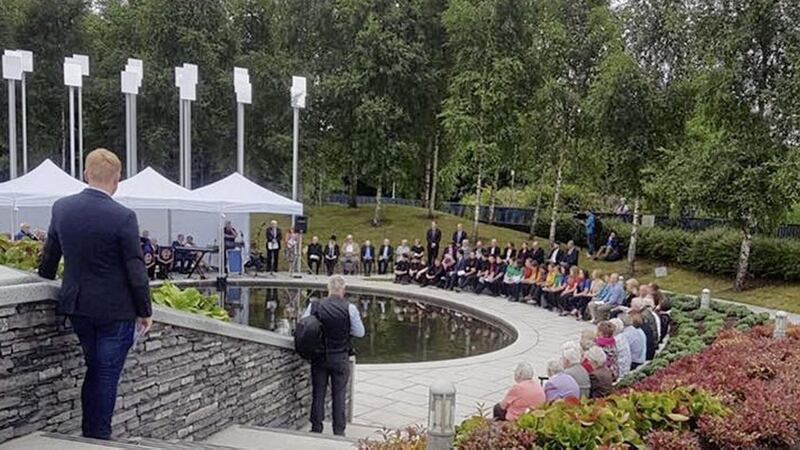There are many remarkable stories woven through the Irish peace process – peace itself and its durability is the obvious one. From it all the others flow.
And political crises to one side one huge story is about the making of the north’s new police service. The transformation of the RUC from a partisan war-designed force to an impartial peace-time police service (PSNI) – a journey which is still in progress.
Two figures who played a leading role in that remarkable transformation are Sir Des Rea and Sir Huge Orde, former chairperson of the Policing Board and a former Chief Constable respectively.
Des Rea has the distinction of being the first chairperson of the board so his stewardship was a crucial element in convincing nationalists, and republicans in particular, that the new police service was worthy of their critical support. I think he has achieved that with considerable merit.
Des Rea has gone into print twice to tell the police story. His second book ‘Bear in mind these dead: The Omagh Bombing and Policing’, is jointly authored with Hugh Orde.
There are two stories running through the second book, published last year. The evolution of the new Policing Board and the impact on it and the police service of the Omagh bomb which killed 29 men, women and children as well as unborn twins.
There is a constant cross-over between both stories as the the families of the bereaved of Omagh struggle to bring truth and justice to the bereaved and injured in a bombing, which claimed the biggest loss of life in the conflict, and the impact their campaign had on the board and the new police service.
There is also a constant tension throughout this interface between the Omagh relatives and the Policing Board and the police and the book reflects this tension.
On all sides, there is a firm desire and belief that the Omagh families are entitled to truth and justice and that they should get it.
But the reader is left with a sense that will be not be achieved because there are bigger and more malign influences at work beyond the families, the board and the police.
Truth and justice is obtainable for the Omagh families but it sits somewhere on the spectrum between establishing a civic police service and wrenching political control from those in the British government and elements in the police hierarchy who are using ‘national security’ to prevent the truth for hundreds of relatives who lost loved ones in the conflict.
Truth and justice seems to be trapped in that arena where the dead hand of the intelligence community rests.
But the tenacity of the Omagh families for truth coincides with an openness on the board and the police (with some exceptions) which reflects the commitment to new policing arrangements by the board and the police.
And although this openness does not secure the families’ principal objectives there is no doubt that their demands led to significant changes in how the police function.
Ten inquiries – the highest profile by the former Police Ombudsman Nuala O’Loan - try to answer the two questions posed by Keir Starmer, the human rights adviser to the police, in the book’s foreword: with the information and intelligence available to the RUC, if acted upon, could the bombing have been prevented and was the investigation into the bombing as robust as it should have been?
The book does not try to answer these pertinent questions. Individual police officers do but not satisfactorily. O’Loan’s answer is pointed. She said it was not possible to say what impact other action would have had, or whether action other than that taken by Special Branch could have prevented the Omagh bomb.
It is for these reasons the families announced a week before the 19th anniversary of the bombing a few weeks ago that they are suing the present Chief Constable for damages and judicially challenging the British government’s refusal to conduct a public inquiry into the bombing.
Although unsaid in the book the answer to both questions can only be found in a public inquiry.
The book’s title, ‘Bear in Mind these Dead’, refers to the Omagh victims but it is equally applicable to all those who died in the conflict and those relatives campaigning for truth and justice.








